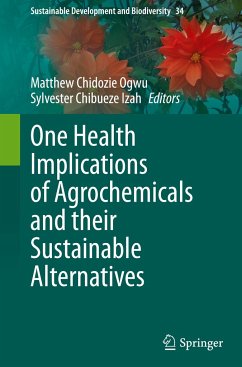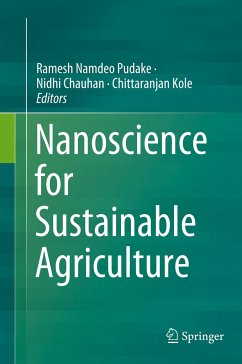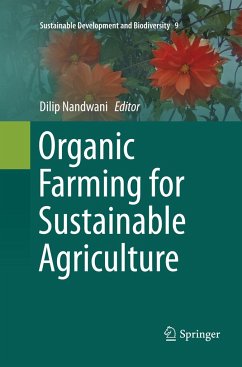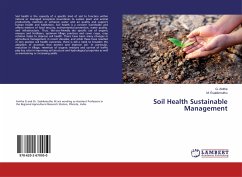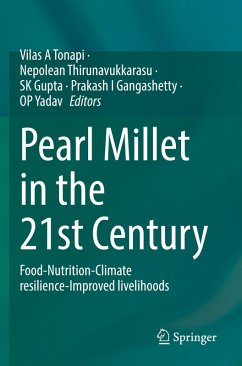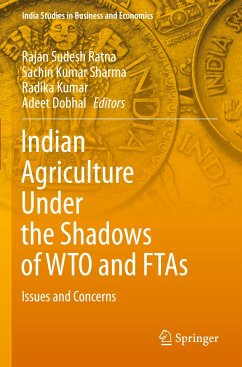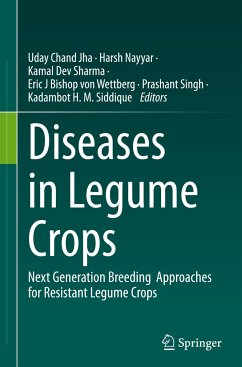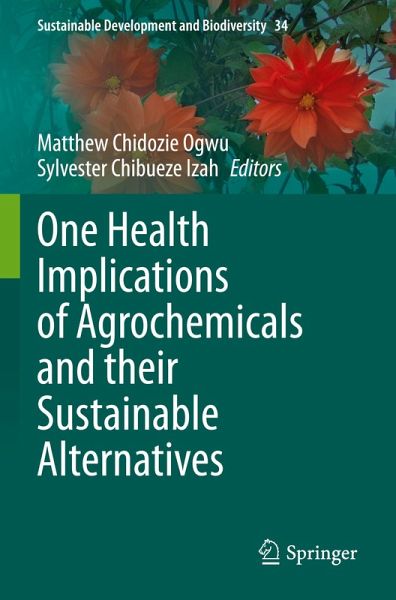
One Health Implications of Agrochemicals and their Sustainable Alternatives
Versandkostenfrei!
Versandfertig in 6-10 Tagen
190,99 €
inkl. MwSt.

PAYBACK Punkte
95 °P sammeln!
This book focuses on the United Nations SDG 3, SDG 12, and SDG 15. The book covers the full range of issues associated with agrochemical use from a One Health standpoint to promote a cleaner and safer alternative that leaves little to no negative legacy on Earth's natural, social, and economic systems. The main focus of the book is to address the biodiversity and human health, food security, and socio-environmental implications of agrochemical use in food production. It deals with the need to move away from the use of harmful chemicals in agriculture. The threat to key aspects of One Health wi...
This book focuses on the United Nations SDG 3, SDG 12, and SDG 15. The book covers the full range of issues associated with agrochemical use from a One Health standpoint to promote a cleaner and safer alternative that leaves little to no negative legacy on Earth's natural, social, and economic systems. The main focus of the book is to address the biodiversity and human health, food security, and socio-environmental implications of agrochemical use in food production. It deals with the need to move away from the use of harmful chemicals in agriculture. The threat to key aspects of One Health will be used as evidence in support of the need to transition to safer and cleaner food production systems as well as the social, economic, health, and environmental viability of sustainable alternatives.
One Health is the innovative convergence approach that encourages collaborative, cross-sectoral, and transdisciplinary methods to monitor, assess, report, and implement sharedhumanhealth, biodiversity, and environmental challenges and goals such as agrochemical use. Conventional agrochemicals are chemicals used to protect plants, improve crop yield and manage agricultural fields but also have a negative legacy on Earth's systems.
This book is of interest and useful to agricultural trainees and trainers, soil, food and agricultural institutes, food and soil systems specialists, biodiversity and environmental managers, activists, practitioners, and students. It is also a useful read for conservationists and industries interested in promoting organic agriculture for a sustainable community, regional and global development.
One Health is the innovative convergence approach that encourages collaborative, cross-sectoral, and transdisciplinary methods to monitor, assess, report, and implement sharedhumanhealth, biodiversity, and environmental challenges and goals such as agrochemical use. Conventional agrochemicals are chemicals used to protect plants, improve crop yield and manage agricultural fields but also have a negative legacy on Earth's systems.
This book is of interest and useful to agricultural trainees and trainers, soil, food and agricultural institutes, food and soil systems specialists, biodiversity and environmental managers, activists, practitioners, and students. It is also a useful read for conservationists and industries interested in promoting organic agriculture for a sustainable community, regional and global development.



